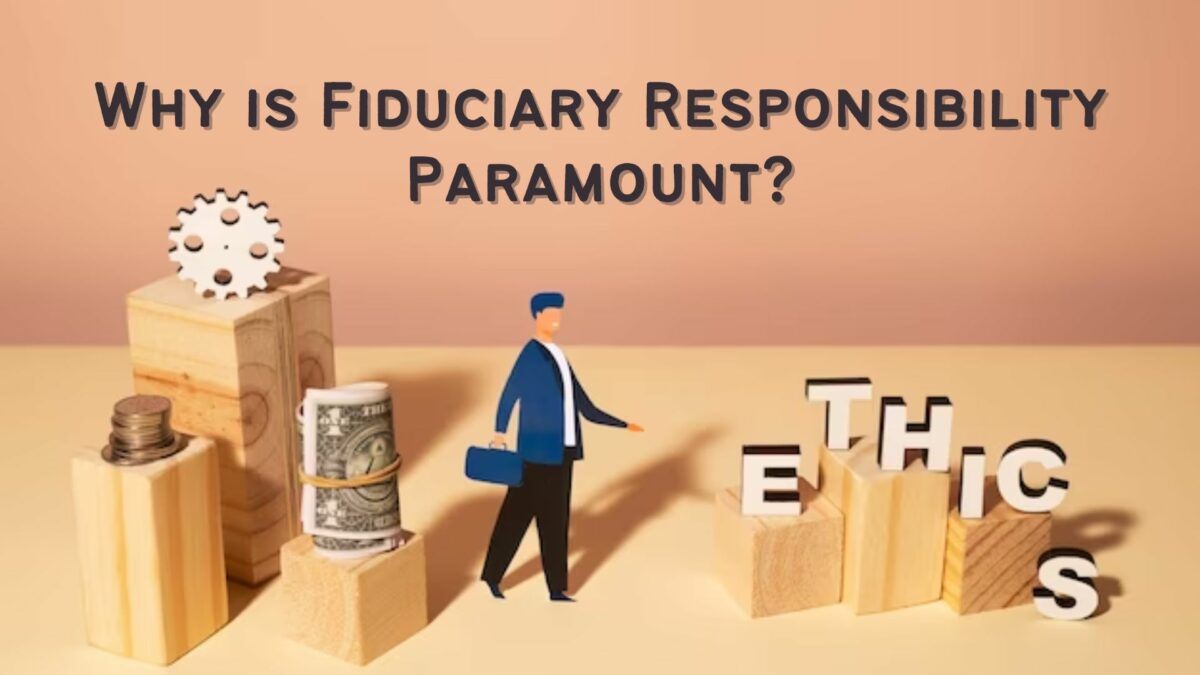fiduciary adj
Definition of FIDUCIARY
: of, relating to, or involving a confidence or trust: as
a: held or founded in trust or confidence
b: Holding in trust
c: depending on public confidence for value or currency (fiduciary fiat money)
–Merriam-Webster Dictionary
No pictures.
No funny stories.
This is going to be a wall of text.
It’s important to me, and it should be important to you. I hope you read it all the way through.
How do you look for information? It’s usually through recommendations of your friends or those you trust, or you probably look on Google to find answers. You probably got here through one of these channels or through one of those six degrees of Kevin Bacon skeins via Twitter. There are thousands of other voices like me giving thoughts and general advice, and the dirty little secret that nobody seems to want to admit is that we’re all doing it to make ourselves money.
Yup. We’re all dirty, rotten, stinking capitalists.
If that gives you rumblings in your stomach because you think that we should all give you everything for free, well…sorry. You’re welcome to close this window. I mean that.
For the rest of you who have remained and are OK with the fact that everyone has to earn a living somehow, it’s important to ask yourselves this question.
How Are We Making Money?

There are a lot of ways to make money by providing financial information, and some of them are much more legitimate than others.
If you follow financial bloggers who are basically online diaries of how they’re getting out of debt or on their road to millions, chances are that they are supported by online advertisements. You click on a link to a book they recommend or you click on a credit card ad on the sidebar, and a little bit of dosh clinks into their bank accounts. There’s nothing wrong with that. It’s how Google makes money, how ABC, CBS, Fox, and NBC make money, and how countless others have made money. It’s a trade – their information for your willingness to expose yourself to advertising.
However, think about the unintended consequences of the advertising. If you ask a blogger what the best credit card/online bank account/brokerage account/whatever is, where is the place he or she is going to send you? Even if they’re well-intentioned, there’s going to be a desire, overt or not, to send you to an advertiser. It’s how they get paid. They’re subject to the law of reciprocity. Consider this: let’s say that American Express sponsored my site. Do you think I’d tell you that AmEx was a terrible card because you have to pay annual fees for it? No. Why bite the hand that feeds me?
By the way, if you’re paying an annual fee for AmEx, you’re shredding money.
Now, let’s examine financial planners, of which I am one. There are three breeds of financial planners:
The first is a commission-based planner. These people are salesmen with different hats. Don’t get me wrong. Every entrepreneur and every person who has to go out and kill something and drag it home is a salesman. If you are an entrepreneur or work for a small business and don’t think that you are a salesman, you are deluding yourself and should reconsider your line of work.
But, I digress. Commission-based planners are going to steer you toward products that pay them the highest commission. Need a life insurance policy? How about that variable universal life insurance plan? Why? They’ll sell you on things like cash value and upside appreciation. The unspoken truth is that they’ll get a massive chunk of change out of you in commissions. Want to invest in a mutual fund? They’ll point you at some front-loaded mutual fund and then weave a brilliant story about how people who invest in loaded mutual funds stay for the long term, outperforming the market’s squeamish investors in no-load funds. The real reason they suggest front loads? They get a nice piece of that front load. If you were P.T. Barnum’s sucker born that minute, the commission-based planner will put every commissionable product in front of you that he can. As Matt Damon said in the movie Rounders, “If you can’t spot the sucker in the first half hour at the table, then you ARE the sucker.”
The second type of planner is one who gets paid as a percentage of the assets under management (AUM). If you invest $100,000 with this planner, you’ll probably pay 1% per year for the privilege of doing so. This planner will tell you that he can invest more intelligently than you and make higher returns, all the while, creating a higher mountain of returns for you to climb to be as well off as you could be doing it yourself.
This type of planner will tell you that he or she has outperformed the market during his or her time management. Well, let’s look at how individual stocks have performed over time. Between 1983 and 2008, the individual stocks which comprise the Russell 3000 index underperformed the index itself 64% of the time. The impact of this weighted underperformance means that there are a few big winners which raise the average for the underperformers. The chances of picking one stock which beats the index five out of 10 years is 10.7%. The odds are not stacked in your favor.
Furthermore, this planner has to earn more than his percentage fee to get you to the same point that you would otherwise be. Let’s say that the planner charges you 1% for his services. Between 1982 and 2008, the Russell 3000 returned 11.5% and had a standard deviation of 18.4%. To make up for his 1% fee, the planner would have to return 12.6%. Based on these numbers, your planner has a 47.6% chance of hitting that number each year (for you Excel fans, the formula is 1-normsdist([planner return – average return]/standard deviation)). Play that out for five years, and your planner has less than a 1% chance of providing you with above-average returns or better. Furthermore, this type of planner has the incentive to try to swing for the fences because the more money he manages, the more fees he makes.
Fees add up and cause you to flip a loaded coin. You need to have a high tolerance for risk to go this route.
The third type of planner is an hourly or fixed fee planner. These planners pay you for the hours that they work, and that’s it. They evaluate your situation and come up with a plan that is tailored to your situation and explain how to implement it. Furthermore, since they do not receive commissions or advertising revenues, they look for the highest absolute returns for your dollar adjusted for the risk you are willing to take. If, for example, term life is the best product for you (chances are pretty good that it is), then that’s fine. It doesn’t matter to the hourly planner that term life insurance pays terrible commissions because the hourly planner doesn’t get commissions anyway. He is going to look for and recommend instruments which get you, the customer, the best deal.
Don’t go naively and dreamy-eyed into an hourly planner’s arms, though. The perverse incentive is to work extra hours to run up the bill. The more hours there are, the higher the bill, and the more money the financial planner makes.
Where is your protection?

So, we finally come to the point where we discuss how you protect yourself from getting fleeced. It’s called fiduciary duty. The Securities and Exchange Commission has a pretty clear line definition of what it means to have a fiduciary duty:
As an investment adviser, you are a “fiduciary” to your advisory clients. This means that you have a fundamental obligation to act in the best interests of your clients and to provide investment advice in your clients’ best interests. You owe your clients a duty of undivided loyalty and utmost good faith. You should not engage in any activity in conflict with the interest of any client, and you should take steps reasonably necessary to fulfill your obligations. You must employ reasonable care to avoid misleading clients and you must provide full and fair disclosure of all material facts to your clients and prospective clients. Generally, facts are “material” if a reasonable investor would consider them to be important. You must eliminate, or at least disclose, all conflicts of interest that might incline you — consciously or unconsciously — to render advice that is not disinterested. If you do not avoid a conflict of interest that could impact the impartiality of your advice, you must make full and frank disclosure of the conflict. You cannot use your clients’ assets for your own benefit or the benefit of other clients, at least without client consent. Departure from this fiduciary standard may constitute “fraud” upon your clients (under Section 206 of the Advisers Act).
How do you ensure that the provider of financial advice with whom you work has a fiduciary duty to you? There are two ways.
- Work with a Registered Investment Adviser firm and a Registered Investment Adviser Representative within that firm. RIAs have a legal fiduciary duty to you, the client, meaning they have to work in your best interests. Does that mean that they have to work for free? No, but it does mean that they have to disclose how they get compensated and have to work in your best interest. It’s still a fair exchange – you give money and in exchange you get information and work which is valuable to you; however, it also protects you from unscrupulous behavior. I am personally a Registered Investment Advisor Representative, and my company is a Registered Investment Adviser. Therefore, I have a legal fiduciary obligation to my clients.
- Work with someone who will sign a Fiduciary Oath. By signing the oath, you will create a binding obligation with the adviser to work in your best interests. Here is a good one to use.
This isn’t to say that fiduciary duty is the only thing that you should look for in a financial planner. A financial planner who has a fiduciary duty to you but doesn’t know what he’s doing is still going to blow your money. Fiduciary duty, though, is a necessary condition for you to have a successful relationship with your financial planner.
It’d be a perfect world if we could all trust each other. Unfortunately, there have to be backstops in place to protect yourself. The obligations of fiduciary duty help protect you, as a client, when you enter into a financial planning relationship with a provider.
How important is fiduciary duty to you? Let’s talk about it in the comments below.
Author Profile
- John Davis is a nationally recognized expert on credit reporting, credit scoring, and identity theft. He has written four books about his expertise in the field and has been featured extensively in numerous media outlets such as The Wall Street Journal, The Washington Post, CNN, CBS News, CNBC, Fox Business, and many more. With over 20 years of experience helping consumers understand their credit and identity protection rights, John is passionate about empowering people to take control of their finances. He works with financial institutions to develop consumer-friendly policies that promote financial literacy and responsible borrowing habits.
Latest entries
 Low Income GrantsSeptember 25, 2023How to Get a Free Government Phone: A Step-by-Step Guide
Low Income GrantsSeptember 25, 2023How to Get a Free Government Phone: A Step-by-Step Guide Low Income GrantsSeptember 25, 2023Dental Charities That Help With Dental Costs
Low Income GrantsSeptember 25, 2023Dental Charities That Help With Dental Costs Low Income GrantsSeptember 25, 2023Low-Cost Hearing Aids for Seniors: A Comprehensive Guide
Low Income GrantsSeptember 25, 2023Low-Cost Hearing Aids for Seniors: A Comprehensive Guide Low Income GrantsSeptember 25, 2023Second Chance Apartments that Accept Evictions: A Comprehensive Guide
Low Income GrantsSeptember 25, 2023Second Chance Apartments that Accept Evictions: A Comprehensive Guide

